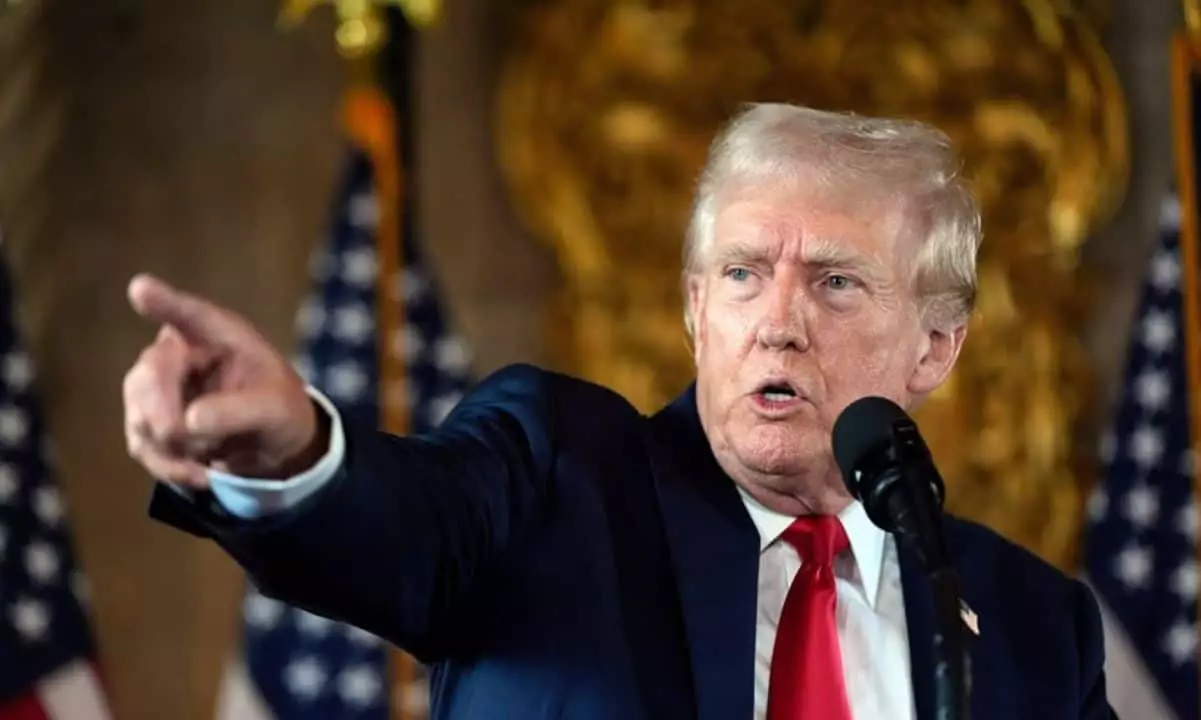In an age where ethical lines are increasingly blurred, the lavish dinner at President Donald Trump’s Virginia golf club serves as a glaring case study. The price tag? A staggering $394 million collective investment in the TRUMP meme coin by the attendees, comprising billionaires and influential figures from the cryptocurrency world. Such an extravagant event, held for the top 220 holders of this digital currency, raises serious questions not only about the motivations behind it but also about the perceived propriety of political figures mingling with financial elites, all while navigating the murky waters of campaign finance laws.
The presence of individuals like Justin Sun, the founder of Tron, compounds the dilemma. With his dubious reputation and ongoing federal investigations into his business practices, his participation in the gala casts a pall over what might otherwise be regarded as a celebratory day. Here we have a meeting point of wealth and potential foreign influence, creating a scenario ripe for exploitation. The troubling intersection of cryptocurrency and political fundraising becomes all the more pronounced when we consider the source of these funds, with many attendees reportedly acquiring TRUMP tokens via offshore exchanges.
Foreign Influence and Legal Ramifications
The loaded question of foreign influence cannot be ignored. Reports indicate that many event patrons likely reside outside the U.S., highlighting a critical vulnerability: the possibility that foreign nationals could use cryptocurrency to bypass traditional campaign financing rules. The emoluments clause of the Constitution was designed to prevent foreign powers from exerting undue influence on American officials, yet here we are at an event that feels like a loophole waiting to be exploited.
The response from Congress is as expected, and yet feels inadequate in light of the audacity of the event. With 35 members signing a letter demanding an investigation by the Justice Department, we see the beginnings of what could be a significant political backlash. The introduction of the “Stop TRUMP in Crypto Act” by Representative Maxine Waters points to a growing bipartisan acknowledgment of the need for stricter regulations on digital assets, specifically targeting officials profiting from them. But will these actions translate into real change? The political climate suggests more spectacle than substance.
The Public Outcry
Critics have aptly branded the dinner an “orgy of corruption,” echoing sentiments shared by Massachusetts Senator Elizabeth Warren and Connecticut Senator Richard Blumenthal. Their words could be seen as hyperbolic, yet they capture the essence of public sentiment towards this event. The sight of protestors outside the venue, brandishing signs like “Crypto corruption” and “America is not for sale,” serves as a stark reminder that the American public is deeply wary of such apparent collusion between wealth and power.
With on-chain records revealing that just the top 25 investors shelled out over $111 million for TRUMP tokens, the monetization of political access comes into sharp focus. Despite claims that Trump was engaging in a personal capacity, the optics of the event—complete with a lectern featuring the presidential seal—further convolute the narrative. How can the public accept that the lines between personal ambition and the responsibilities of the presidency are so easily trampled?
As debates swirl around the implications of such high-dollar events, a chilling reality unfolds: trust in our political institutions is dangling by a thread. How can we place faith in elected officials when they seem willing to mingle with moguls and the sordid underbelly of crypto finance? The dinner may have been an exercise in brazen capitalism, but its resulting fallout poses existential questions about the integrity of our democracy and the ethical obligations of our leaders. While Trump may bask in the glow of this newfound financial support, many Americans are left grappling with unsettling concerns about transparency, accountability, and the intricate dance of power and wealth that now plays out under the guise of innovation and progress.

